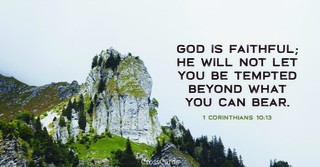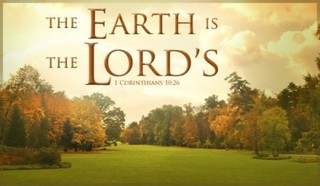- Recent Translations
- All Translations
Kehillah in Corinth I 10:17
Share
Settings
Kehillah in Corinth I 10:17 Meaning and Commentary
For we being many, are one bread and one body
The several members of the church of Christ; particular believers are indeed many, considered in themselves, in their own persons; yet by virtue of their union to Christ, which is manifested by their communion with him, they are one bread with him, the bread of life, and one body with his, signified by the bread; they are of one and the same mass and lump, they are incorporated together, they are flesh of his flesh, and one spirit with him: or they are one bread and body among themselves; as bread consists of many grains of corn which have been ground and kneaded together, and make up one loaf; and as the members of an human body are many, and make up one body; so believers, though they are many, yet are one body, of which Christ is the head; one in union with him and one another, and one in their communion together at the Lord's table; and so the Syriac, Arabic, and Ethiopic versions read, "as therefore the bread is one, so we all are one body"; having communion with Christ and one another:
for we are all partakers of that one bread;
in the supper, which is all of the same nature and kind, and is a symbol of the body of Christ, and our fellowship with him and each other. The application designed is this, that as believers, by partaking of the same bread, appear to be the same body, and of the same mass and lump with one another; so such as eat things sacrificed unto idols, appear to be of the same mass and lump with Heathen idolaters: Dr. Lightfoot has very pertinently produced some passages out of Maimonides, concerning mixing, associating, or communion of neighbours in courts on sabbath eves, that so they may enter into each other's houses on the sabbath day, for the illustration of this passage; of which mixing the Jews have a whole treatise in their Misna and Talmud, which they call Erubin; and of which they say F8
``but how is this mixture or association? it is thus, they mix together, (dxa lkamb) , "in one food", which they prepare on the eve of the sabbath; and it is as if they should say, for we are all mixed together, and have all one food; nor does anyone of us divide the right from his neighbour--they do not mix in courts, but (hmylv tpb) "with a whole loaf" only; though the mass or lump baked may be the quantity of a "seah", yet if it is broken, they do not associate with it; but if it is whole, though it be but the value of a farthing, they mix with it--how do they mix or associate together in the courts? they collect (hmylv txa hlh) , "one whole cake", out of every house, and put all in one vessel, in one of the houses of the court--and the whole association being gathered together, blesses the Lord--and eats:''upon which the above learned writer observes, that if it were customary among the Israelites, to join together in one political or economical body, by the eating of many loaves collected from this, and that, and the other man; we are much more associated together into one body, by eating one and the same bread, appointed us by our Saviour.
F8 Maimon. Hilch. Erubin, c. 1. sect. 6, 8, 16.

